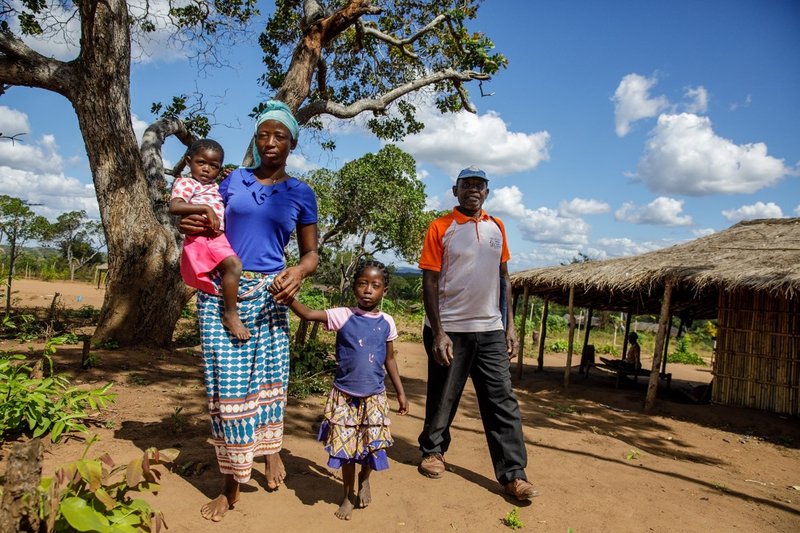Escaping the violence for a second (and final) time
Peter Waddup, CEO - The Leprosy Mission Great Britain
This week my heart goes out to my colleagues packing up their lives to flee violence in Mozambique.
Living with their lives in jeopardy is something this amazing team has done for too long. Based in Pemba, to the south of the Cabo Delgado, they have lived in the midst of escalating violence since 2017. The insurgency by a jihadi group has thrown Mozambique's most northerly province into turmoil. Armed raids, arson attacks and even beheadings have become commonplace. Around 5,000 people have been killed in the poor, rural province. The United Nations states that almost a million people have been forced to flee their homes.

Clementina was subjected to unspeakable violence when insurgents descended on her home village in Cabo Delgado. After running for their lives, there was an unexpected blessing when her young daughter was treated for leprosy. Despite Clementina's best efforts, for years she was never able to get to the bottom of the discoloured patches on little Elisa's skin. Thankfully the village chief in her new village recognised them to be early signs of leprosy. Happily Elisa is now completely cured of leprosy before it could do any lasting damage to her young body.
During these dark days my colleagues have risked their own lives to find and cure people of leprosy. In a part of Africa where doctors are scarce, they have had to think creatively. As an example, they have trained traditional healers and religious leaders to recognise the early signs of leprosy. This way a trusted voice is able to signpost a person to treatment.
My colleagues have been distressed to hear of the attacks on villages where they have worked to help bring about health and prosperity. Some of these most northerly villages are now unreachable. All they can do is make phone contact with the people they have come to know and love as and when connections allow.
The team has already had to temporarily move from their base in Pemba because of the insurgency. And now, after a fresh wave of violence on Cabo Delgado's southern districts in February, a decision has been made to leave Pemba for good. They are packing up their homes, offices and lives to head further south to relative peace.
Relocation is something many of us have experienced and it can be tough. Leaving a community you know and love and often wider family is heart-wrenching. It can be upsetting for children to change school and leave behind friendship groups. For our team leaving Pemba there is all of this plus many other emotions at play. The guilt of somehow abandoning communities that are currently inaccessible. The haunting feeling as to why the people they serve are prisoners to the violence and not them. Then there are safety fears for wider family members and the guilt of leaving them behind.
Life is tough for this special group of colleagues and I am in awe of their commitment to people affected by leprosy. I know many of these amazing colleagues well and they would be truly mortified to be regarded as heroes. Yet the laying down of their own lives to serve one of the world's most neglected people groups is an incredible sacrifice. It is one, I believe, that should be heralded.
We have always worked in Cabo Delgado as the province thought to bear the leprosy burden of Mozambique. The violent attacks of recent years, however, have seen my colleagues venture into the neighbouring province. The green shoots of the insurgency is that the team has been able to cure 600 people of leprosy in the past two years! This is a ten-fold increase on 2022 when we first started working in Zambezia. It shows the power of this cruel disease to take hold of Africa's poorest communities. Just as the insurgency has captured lives in Cabo Delgado, leprosy continues to blight lives across Mozambique. Without the cure, lives will undoubtedly be devastated. Just beginning in a quieter yet equally destructive way.